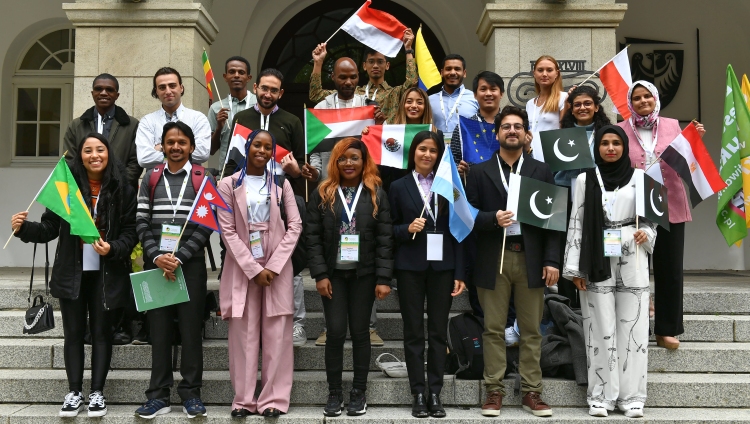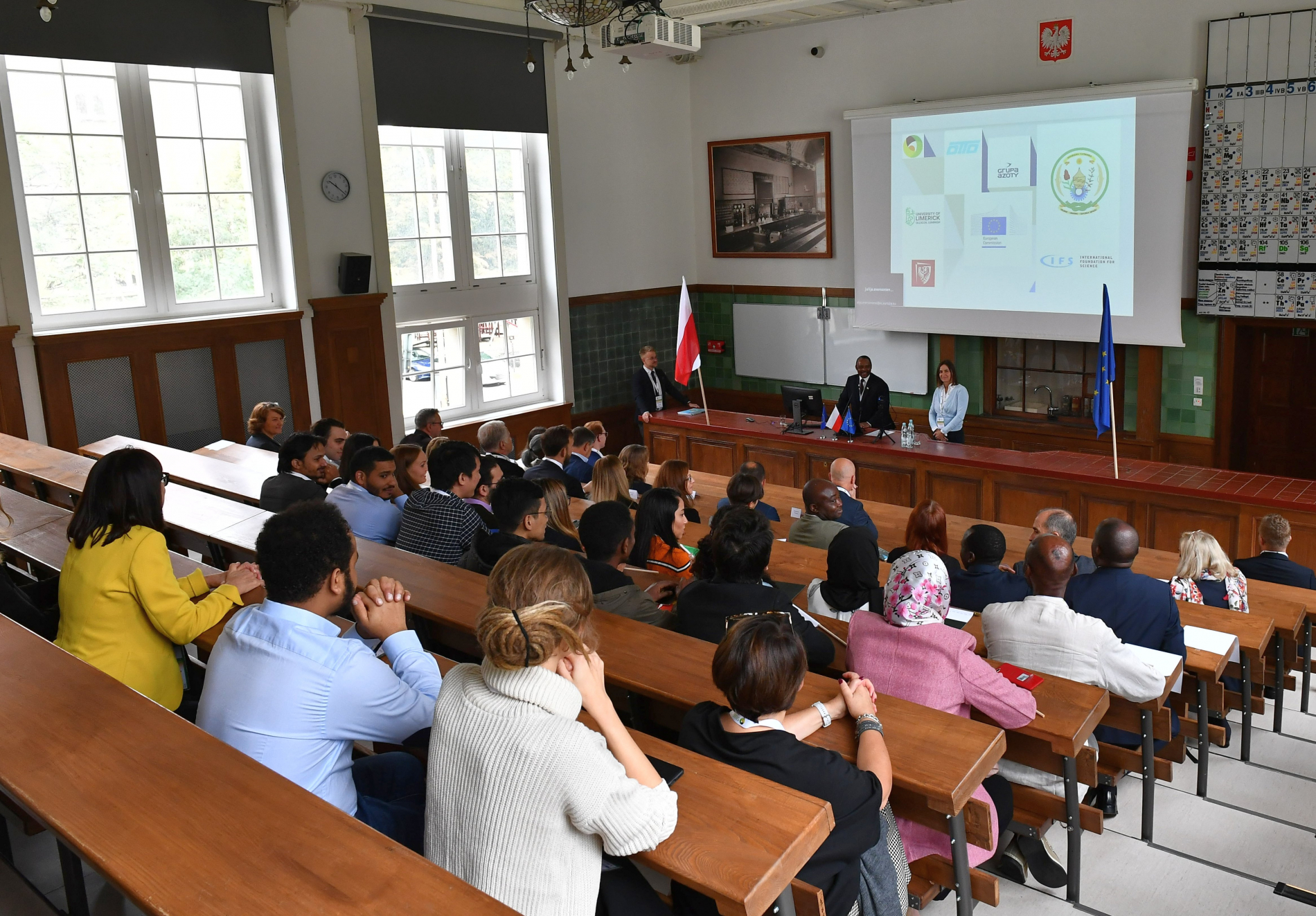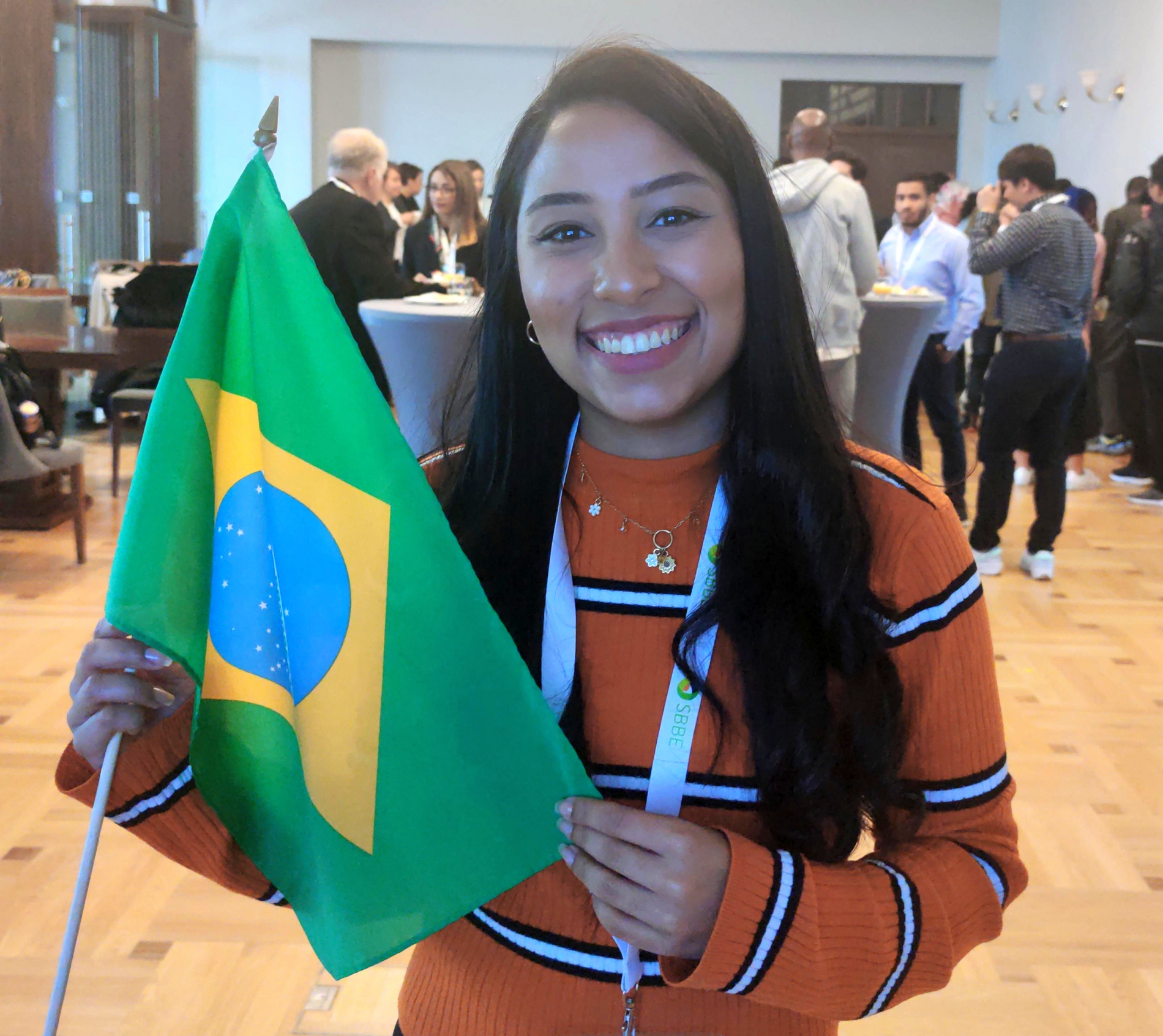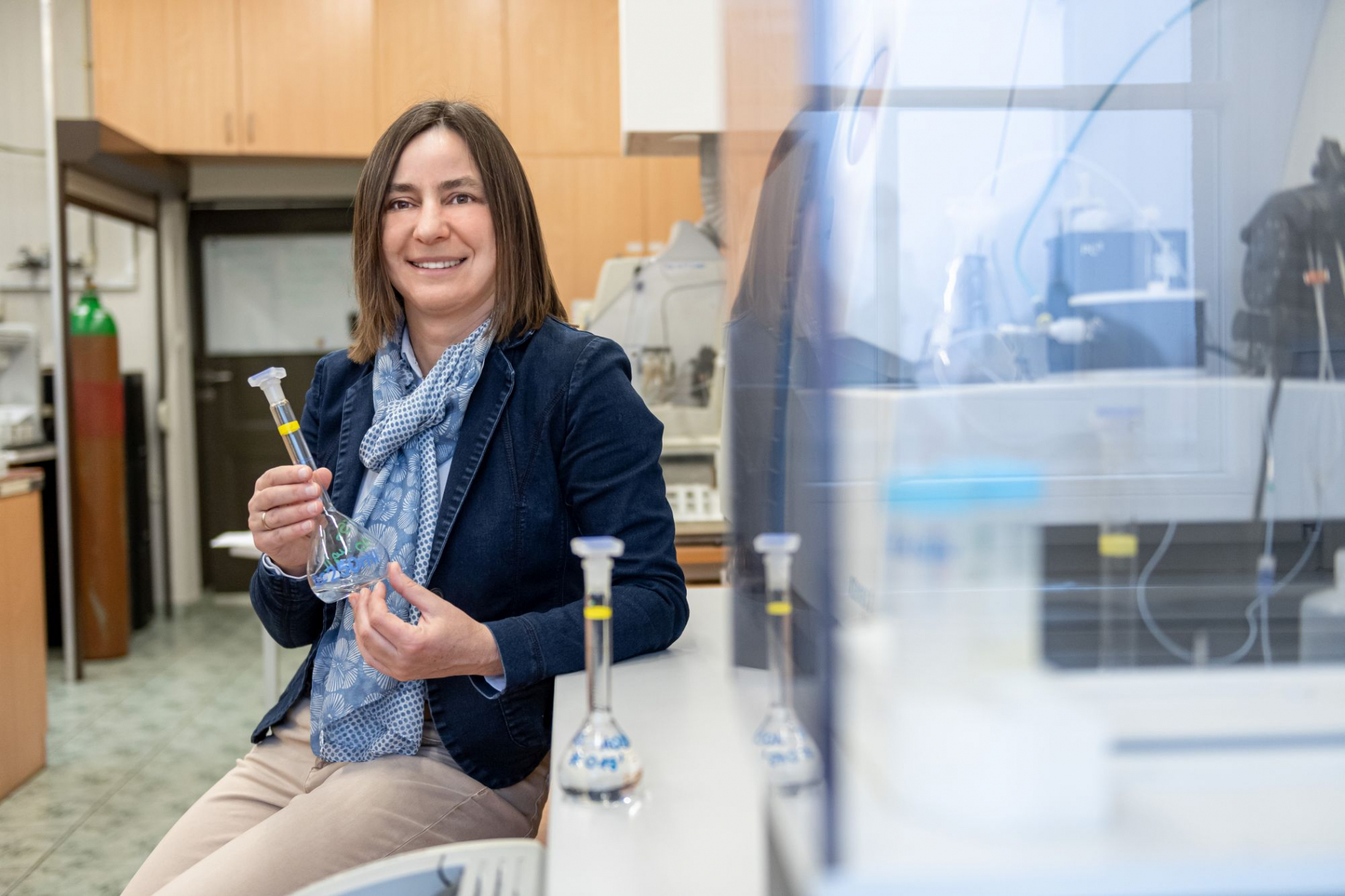YOUR BROWSER IS OUT-OF-DATE.
We have detected that you are using an outdated browser. Our service may not work properly for you. We recommend upgrading or switching to another browser.
Date: 20.09.2022 Category: general news, international cooperation, studies

15 people from all over the world – each from a different country – are starting their degree programmes at Wroclaw Tech as part of the unique course of study entitled Sustainable Biomass and Bioproducts Engineering. Ahead of them is an induction week, during which they will get to know the university, their fellow students, lecturers, and the city.
Egypt, Ethiopia, Nigeria, Rwanda, Sudan, Tanzania, Indonesia, Nepal, Pakistan, United Arab Emirates, Poland, Mexico, Argentina, Brazil, and Colombia. Young people from these countries have completed the first-ever admission to the Sustainable Biomass and Bioproducts Engineering course.
 It is run jointly, under the Erasmus Mundus Joint Master Degree Programme, by three universities: Wrocław University of Science and Technology, the Spanish University of Castilla-La Mancha University, and the Lappeenranta-Lahti University of Technology from Finland.
It is run jointly, under the Erasmus Mundus Joint Master Degree Programme, by three universities: Wrocław University of Science and Technology, the Spanish University of Castilla-La Mancha University, and the Lappeenranta-Lahti University of Technology from Finland.
Together, over the four months of the course, we will train future specialists in sustainable biomass processing and bioproduct engineering. Each graduate will receive a diploma from all three universities.
On Monday, the students arrived in Wrocław, where they will spend their first semester of the programme. For the time being, they are to undergo their induction week, during which they will be given a tour of the laboratories at the Faculty of Chemistry and the Faculty of Mechanical and Power Engineering. Additionally, the induction will involve a visit to the university's brewery and a supplementary course at the analytical laboratory. There will also be bonding events, including sightseeing in Wrocław.
Among other attendees, Rwanda's ambassador to Poland, Anastase Shyaka, took part in the opening meeting of the event.
Today, HE prof.@ashyaka, the Ambassador of #Rwanda to #Poland, was the Guest speaker at @Pwr_wroclaw, during the launch of new EU driven Erasmus Mundus Joint master's program (SBBE). Over 20 candidates from 18 countries of Global South, including Rwanda, will study this program. pic.twitter.com/QHlradQjr2
— Rwanda in Poland (@RwandaInPoland) September 19, 2022
– Returning to the Wrocław Tech campus is an opportunity for me to recall the wonderful memories of my previous visit, but now it is time for new experiences – says Ana Luiza Neves De Amorim, who is studying chemical engineering at the Brazilian Pontifícia Universidade Católica de Minas Gerais. This is the second time she has come to Wrocław University of Science and Technology; in 2019, she spent a semester at the Faculty of Chemistry as a participant in a student exchange programme. She is now starting her master's programme.
 – The new people and three universities involved, it looks like an interesting project, a great adventure, and an opportunity to exchange a lot of experiences – says Ana Luiza. – I'm very excited because our group is small, so we'll be a bit like family to each other. I’m particularly pleased that the curriculum emphasises the practical aspect of the course, rather than just theoretical classes and learning from books. So, I expect to learn a great deal.
– The new people and three universities involved, it looks like an interesting project, a great adventure, and an opportunity to exchange a lot of experiences – says Ana Luiza. – I'm very excited because our group is small, so we'll be a bit like family to each other. I’m particularly pleased that the curriculum emphasises the practical aspect of the course, rather than just theoretical classes and learning from books. So, I expect to learn a great deal.
She adds that what she will find extra challenging is that classes in Brasil are scheduled in morning or evening blocks, whereas in Poland the schedule is stretched over the whole day.
Wrocław University of Science and Technology is the first Polish university to coordinate such a project under the Erasmus Mundus Joint Master Degree Programme. It will run for 5 years with funding of 4.3 million EUR.
– This is the most prestigious two-year master's degree programme in English, where students also receive a scholarship of 1,400 EUR per month – says the SBBE programme coordinator, Professor of the University Jolanta Warchoł, PhD, DSc, Eng. from Wrocław Tech’s Faculty of Chemistry.
During the first semester, conducted at Wrocław Tech, the students are introduced to the synthesis of biomaterials and techniques for analysing the resulting product. The second semester will be conducted in Spain. There, the participants will gain engineering knowledge relevant to the fields of process design, simulation, and optimisation.
 They will complete their studies in Finland, where they will learn about the application of green biomass conversion technologies and the strategy of using bioproducts in practice. In the classes, they will develop engineering-scale designs and prototype installations.
They will complete their studies in Finland, where they will learn about the application of green biomass conversion technologies and the strategy of using bioproducts in practice. In the classes, they will develop engineering-scale designs and prototype installations.
The curriculum also includes internships in industrial enterprises (companies operating in Poland, Finland, and Spain) and placements at universities abroad – in India, Brazil, Colombia, the UK, the Netherlands, the Czech Republic, Portugal, and Romania. The students will also attend specialist lectures delivered by employees of international institutions involved in financing environmental projects.
Read more about this unique and prestigious programme HERE.
Our site uses cookies. By continuing to browse the site you agree to our use of cookies in accordance with current browser settings. You can change at any time.